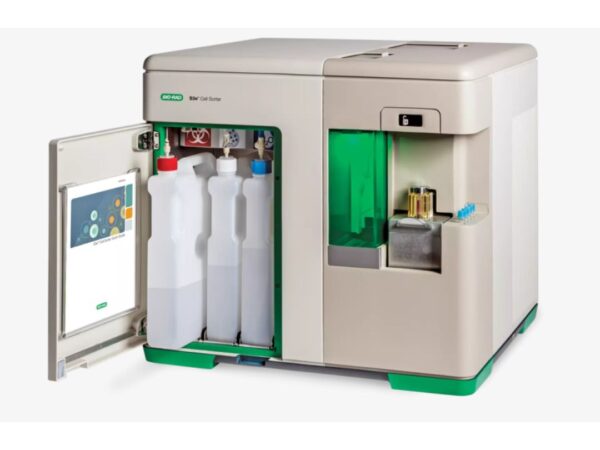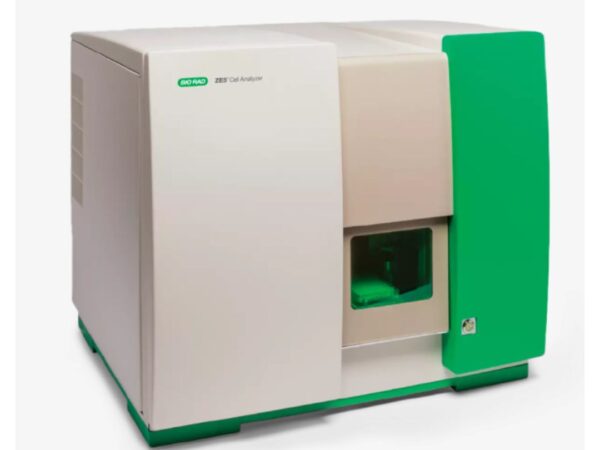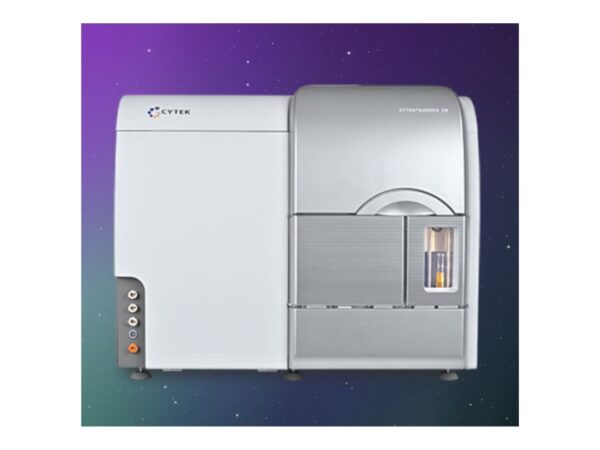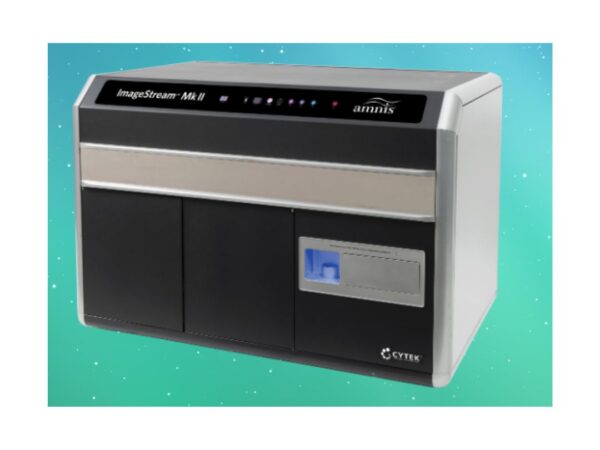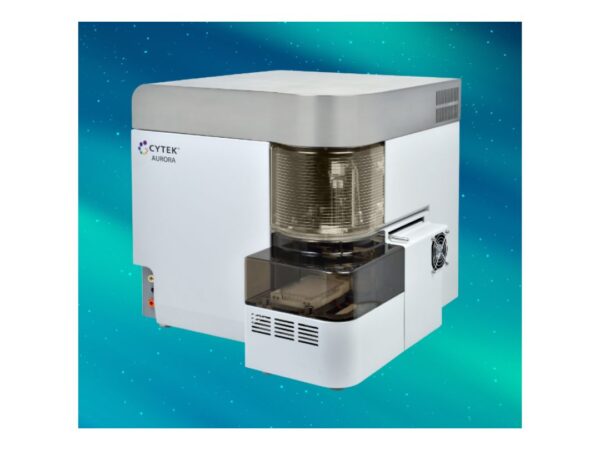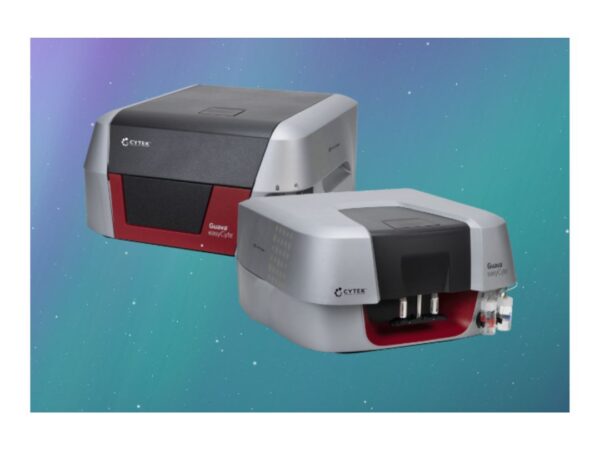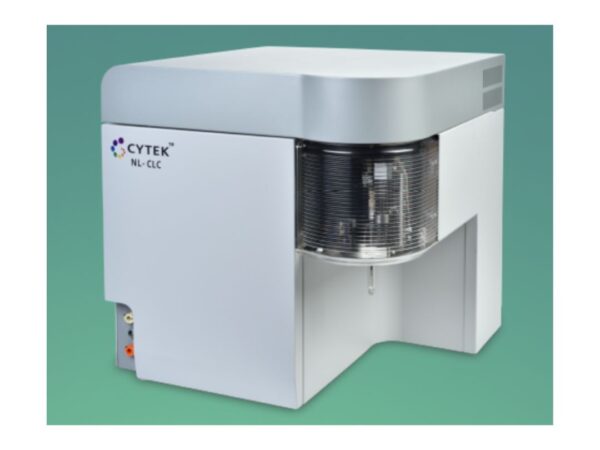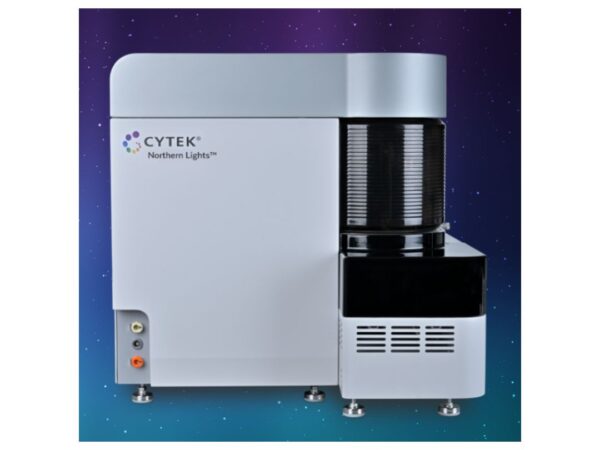Flow Cytometer
Showing 13–24 of 94 results
Category
- Cell Counters and Analyzers+
- Automated Cell Counters
- Manual Cell Counters
- Cellular Imaging Systems+
- Automated Cellular Imaging Workstations
- Brightfield Imaging Systems
- Confocal Imaging Systems
- Fluorescence Imaging Systems
- High-Content Imaging Systems
- Live-Cell Imaging Systems
- Centrifuges+
- Benchtop Centrifuges
- Clinical Centrifuges
- Micro Centrifuges
- Refrigerated Centrifuges
- Ultracentrifuges
- Chromatography Instruments+
- Gas Chromatography
- Ion Chromatography
- Liquid Chromatography
- Liquid Chromatography (APC)
- Liquid Chromatography (SFC)
- Flow Cytometer+
- Cell Analyzers
- Cell Isolation Systems
- Cell Sorters
- High-Throughput Flow Cytometers
- Imaging Flow Cytometers
- Personal Flow Cytometers
- Portable/Benchtop Flow Cytometers
- Spectral Flow Cytometers
- Laboratory Microscopes+
- Atomic Force Microscopes (AFM)
- Automated Modular Microscopes
- Brightfield Microscopes
- Comparison Microscopes
- Compound Microscopes
- Compound Microscopes (Trinocular)
- Confocal Microscopes
- Darkfield Microscopes
- Digital Microscopes
- Digital Slide Scanners
- Educational Microscopes
- Electron Microscopes
- FIB-SEM (Focused Ion Beam Scanning Electron Microscope)
- Fluorescence Microscopes
- Inverted Microscopes
- Live Cell Imaging Microscopes
- Measuring Microscopes
- Metallurgical Microscopes
- Multiphoton Microscopes
- Other Microscopes
- Phase Contrast Microscopes
- Polarizing Microscopes
- Raman Microscopes
- Scanning Electron Microscopes (SEM)
- Stereo (Dissecting) Microscopes
- Stereo Microscopes
- Super-Resolution Microscopes
- Transmission Electron Microscopes (TEM)
- Upright Microscopes (Neuroscience)
- Liquid Handlers+
- Automated Pipetting Systems
- Multi-Channel Liquid Handlers
- Robotic Liquid Handlers
- Variable Volume Pipetting Systems
- Mass Spectrometers+
- Ambient Ionization
- APCI MS
- ESI MS
- FT ICR MS
- ICP MS
- Orbi Trap MS
- Quadrupole MS
- Time-of-Flight MS
- Microarray Scanners+
- Automated Microarray Scanners
- CCD-Based Microarray Scanners
- Clinical/Diagnostic Microarray Scanners
- High-Resolution Microarray Scanners
- Laser-Based Microarray Scanners
- Multi-Wavelength Microarray Scanners
- Microbioreactors+
- Automated Microbioreactors
- Milliliter-Scale Microbioreactors
- Parallel Microbioreactors
- Perfusion Microbioreactors
- Single-Use Microbioreactors
- Stirred-Tank Microbioreactors
- Microplate Readers+
- Absorbance Microplate Readers
- Fluorescence Microplate Readers
- General Microplate Readers
- Kinetic Microplate Readers
- Label-Free Microplate Readers
- Luminescence Microplate Readers
- Monochromator-Based Microplate Readers
- Multimode Microplate Readers
- Particle Counters and Analyzers+
- Aerosol Spectrometers / Optical Particle Sizers
- Airborne Particle Counters
- Coulter Counters
- Dynamic Light Scattering (DLS) Analyzers
- Image Analysis-Based Particle Sizers
- Laser Diffraction Analyzers
- Liquid Particle Counters
- Nanoparticle Analyzers
- Online/Continuous Particle Monitors
- Portable Particle Counters
- Remote Particle Counters
Brand
- ACCU-SCOPE
- Agilent
- Airmodus
- Alphasense
- Analytik Jena GmbH+Co. KG
- ARGO-HYTOS
- Arrayit
- Aurora Biomed Inc.
- Azure Biosystems
- BD Biosciences
- Beckman Coulter
- Beijing Challen Biotechnology
- Biobase
- Bionity
- BioRad
- BMG Labtech
- Bruker
- Celestron
- Centurion Scientific Ltd
- ChemoMetec
- CleanAir
- Cleatech
- Corning
- Countstar
- CS Instruments
- CUBIC
- Cytek Biosciences
- Cytena
- Cytiva
- Data Technologies
- Descase
- Electrolab Biotech
- Eppendorf
- Euromex
- Evident
- Fermex
- Fluke
- Formulatrix
- Getinge
- Gilson
- GPC Bio
- Haier Biomedical
- Hamilton Company
- Hettich
- Hitachi High-Tech
- Hudson Robotics Inc.
- Hydro
- INFORS HT
- Innopsys
- Jasco
- JEOL
- Kanomax
- Keyence
- KNAUER
- LAB-KITS
- Labomed
- Leco
- Leica
- Lighthouse
- Logos Biosystems
- LOSI
- Luminex
- Malvern Panalytical
- Meiji Techno
- Merck
- Mettler-Toledo International Inc.
- Miltenyi Biotec
- Molecular Devices
- Motic
- MP Filtri
- MSE (Medical and Scientific Equipment)
- NCI
- Nikon Instruments
- ORFLO Technologies
- Oxford Instruments
- PAMAS
- Particle Measuring Systems
- Particles Plus
- PBS Biotech
- PCE instruments
- PerkinElmer
- PharSol
- Prior Scientific
- Promega
- Qiagen NV
- Revvity
- RION
- Sartorius
- SATAKE
- Sciex
- SETA
- Setra
- Shimadzu
- SIBATA
- Sigma Laborzentrifugen GmbH
- Solaris Biotech
- Solida Biotech
- Sony Biotechnology Inc.
- SPT Labtech Ltd
- Stratedigm Inc.
- Sysmex Corporation
- Tecan
- TES
- Thermo Fisher Scientific
- TSI
- Waters
- Western States Machine Company
- ZEISS
- ZETRON
-
Beijing Challen Biotechnology LongCyte™ 3-laser 14-color flow cytometer
Provides superior resolution and flexibility for complex multi-parametric flow cytometry applications.
-
Bionity Ampha X30
Ampha X30 enables fast, label-free analysis of viability and cell count using impedance technology.
-
Bionity ZE5 Cell Analyzer
ZE5 Cell Analyzer offers high-speed, multi-laser detection and flexible formats for advanced flow cytometry.
-
BioRad S3e Cell Sorter
The S3e Cell Sorter from Bio-Rad combines automation, precision, and ease of use for high-speed, high-purity cell sorting in research and core laborat...
-
BioRad ZE5 Cell Analyzer
The ZE5 Cell Analyzer is a high-performance, automation-ready flow cytometer with flexible configurations, enabling complex assays and high-throughput...
-
Cytek Biosciences Cytek Aurora™ CS System
Cytek Aurora CS enables sorting based on full-spectrum profiles and complex phenotypes.
-
Cytek Biosciences Cytek® Amnis® ImageStream®X Mk II Imaging Flow Cytometer
ImageStream enables morphological and phenotypic analysis at single-cell resolution.
-
Cytek Biosciences Cytek® Aurora
Cytek Aurora provides advanced spectral cytometry with 3–5 lasers and over 40 colors.
-
Cytek Biosciences Cytek® Guava® easyCyte™ Flow Cytometer
easyCyte simplifies cytometry with plug-and-play assays and minimal maintenance.
-
Cytek Biosciences Cytek® Muse® Micro Cell Analyzer
Muse Micro simplifies everyday flow cytometry with preloaded assays and intuitive software.
-
Cytek Biosciences Cytek® Northern Lights-CLC
NL-CLC integrates spectral cytometry with features for clinical and regulated environments.
-
Cytek Biosciences Cytek® Northern Lights™
Cytek Northern Lights provides flexible 1–3 laser configurations and full-spectrum capability.




